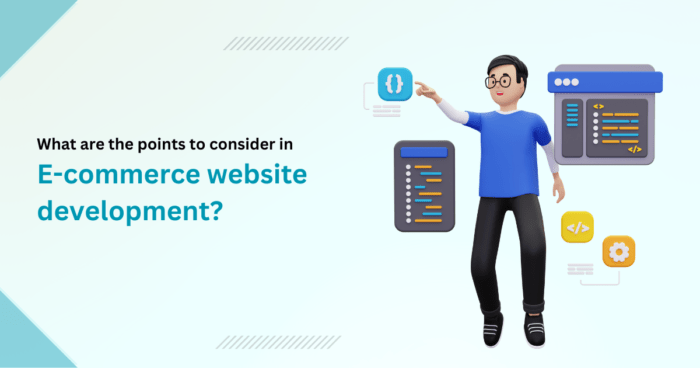Top Features And Factors To Consider In Ecommerce Website Development
In recent years, eCommerce has become an increasingly popular way for consumers to shop, with many people preferring the convenience of online shopping over traditional brick-and-mortar stores. eCommerce website development refers to the process of creating a website that allows businesses to sell products or services online.
An eCommerce website can help businesses reach a wider audience, increase sales, and improve customer engagement. Developing an eCommerce website involves a variety of technical and design considerations, including the selection of an appropriate platform, the creation of a user-friendly interface, and the implementation of effective marketing and payment processing features of eCommerce websites.
Are you exploring new ways to get ahead with eCommerce website development, we can help. Connect with our expert Drupal developers, and we shall help you navigate the custom solution that perfectly defines your web project.
In this blog, we shall find out the top features required in eCommerce website development.

Must-have features to add to your eCommerce website
There are several must-have features of eCommerce website that you should include to ensure a positive user experience and to increase sales:
1. Easy navigation:
The website should be easy to navigate, and products should be organized in a logical manner, with clear categories and subcategories.
2. Product pages:
Each product should have its own dedicated page that includes a clear and concise product description, high-quality images or videos, price, and any other relevant details.
3. Shopping cart:
A shopping cart feature is essential to allow customers to add items to their cart and continue shopping before checking out.
4. Secure payment gateway:
The website should include a secure payment gateway that accepts multiple payment options, including credit cards, debit cards, and digital wallets.
5. Order tracking:
Customers should be able to track their orders, including delivery status and any updates on shipping.
6. Customer reviews:
Including customer reviews on product pages can help build trust and increase sales.
7. Mobile responsiveness:
The website should be mobile-responsive, meaning it should be easily accessible and function properly on all mobile devices.
8. Search function:
A search function helps customers quickly find what they’re looking for, which can improve the overall user experience.
9. Contact information:
Clear and visible contact information should be provided, including a phone number, email address, and physical address, which can help build trust with customers.
10. Social media integration:
Integrating social media links and sharing buttons can help increase brand awareness and reach a wider audience.

What are the points to consider in eCommerce website development?
There are several important points to consider during eCommerce website development. Here are some of the key areas you should pay attention to:
1. User experience:
Your website should be easy to navigate and use, with a simple and intuitive interface. It should also load quickly and be mobile-responsive since many shoppers use their smartphones to shop online.
2. Security:
Security is a top priority for any eCommerce website, as you will be handling sensitive customer information such as credit card details. You should ensure that your website is encrypted and secure, with robust authentication and authorization mechanisms in place.
3. Payment processing:
You will need to integrate a payment gateway into your website to enable customers to make purchases. You should choose a reputable and secure payment gateway provider and ensure that the checkout process is smooth and error-free.
4. Inventory management:
You need to manage your inventory carefully to avoid overselling or underselling. Your eCommerce platform should have a robust inventory management system in place that allows you to track your inventory levels in real-time.
5. Shipping and logistics:
You will need to have a system in place for shipping and handling orders. This may involve partnering with a shipping company, managing your own warehouse and shipping, or drop shipping.
6. Search engine optimization (SEO):
Your website should be optimized for search engines to ensure that potential customers can find you easily. This involves optimizing your website structure, product descriptions, and content for relevant keywords and phrases.
7. Analytics and reporting:
You should have analytics tools in place to track website performance, customer behavior, and sales data. This information will help you optimize your website and marketing efforts, as well as make informed business decisions.
8. Customer service and support:
You need to have a customer support system in place to handle customer inquiries, issues, and returns. This may involve providing customer service through email, chat, phone, or a combination of channels.
Summary
eCommerce website development involves creating an online store that enables businesses to sell their products or services online. When developing an eCommerce website, it is important to consider factors such as user experience, security, payment processing, inventory management, shipping and logistics, search engine optimization, analytics and reporting, and customer service and support.
A successful eCommerce website should be easy to use, secure, offer a smooth checkout process, have accurate inventory management, handle shipping and logistics, be optimized for search engines, track website performance, and provide customer support. By paying attention to these key areas, your business can create a successful online store that attracts and retains customers.
For a well-renowned, and professional eCommerce website development, get in touch with our experts today.







